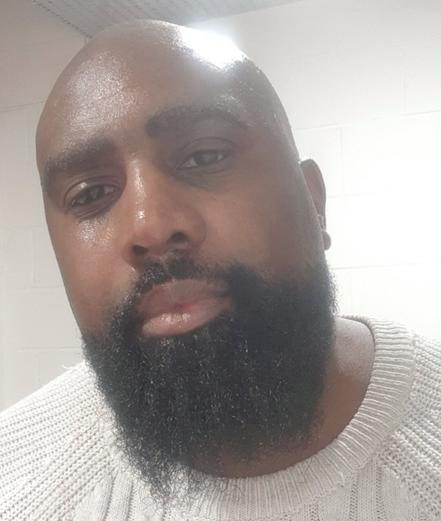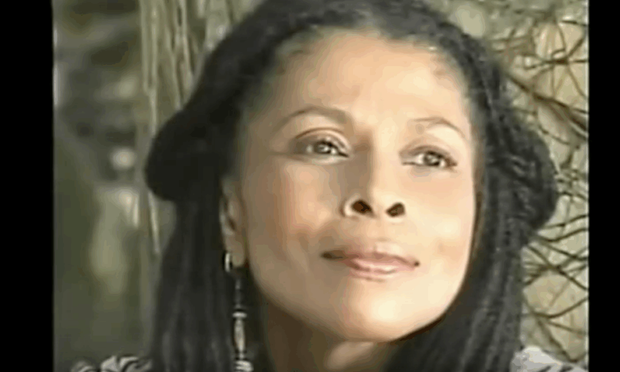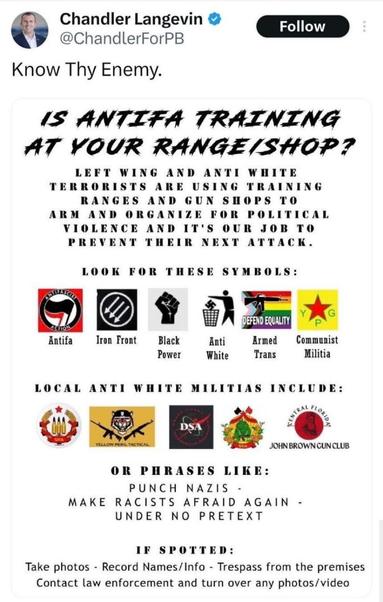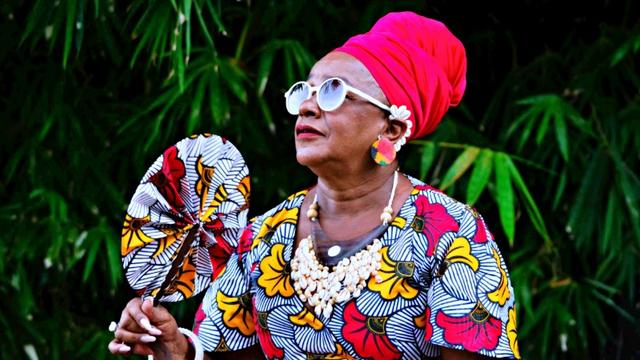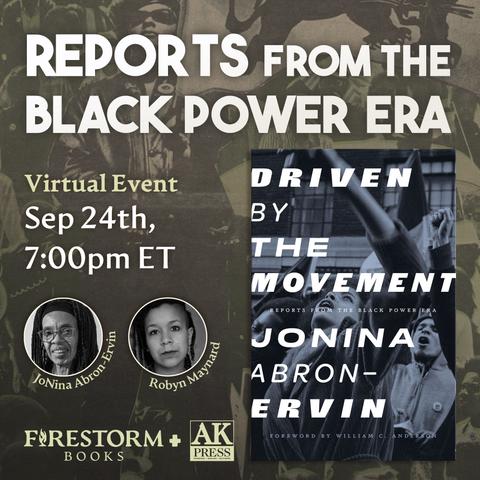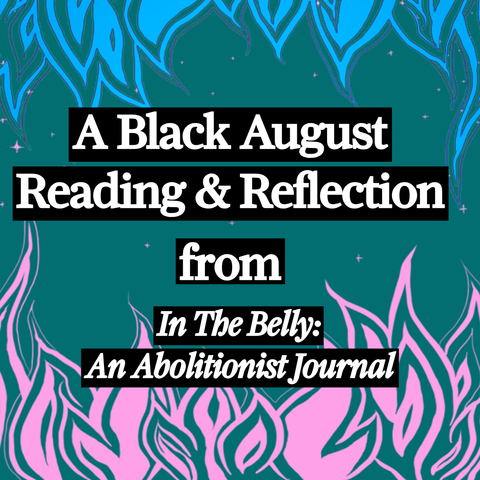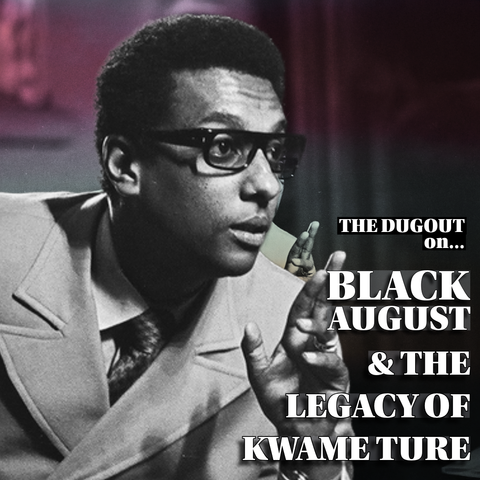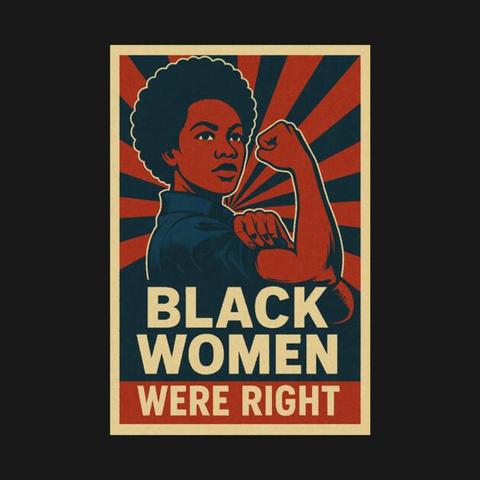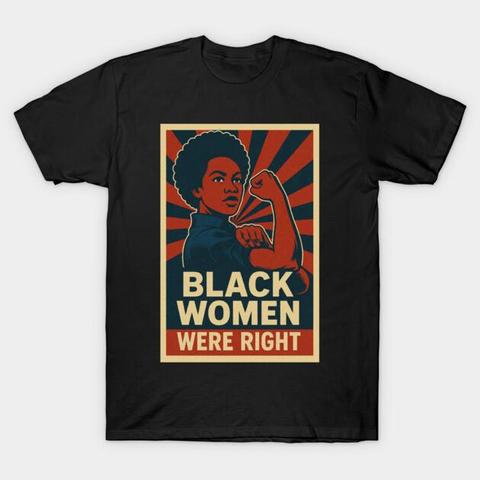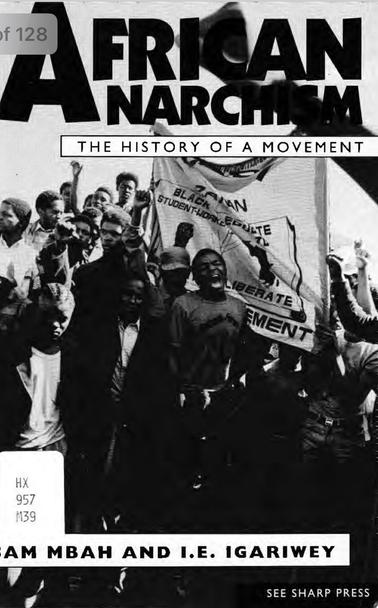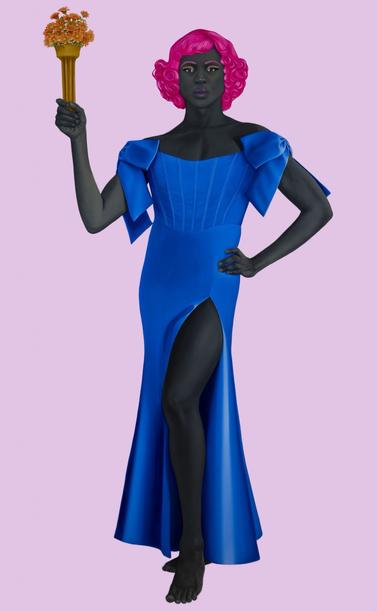#BlackPower
In this clip from "The #BlackPower Mixtape" Angela Davis discusses the legacy of #racism and domestic terrorism in the United States, violence and revolution: http://shine.forharriet.com/2013/05/angela-davis-discusses-us-domestic.html
#AngelaDavis #BlackMastodon #history #blackHistory #stateViolence #revolution
#Kuba - Assata Shakur in Havanna gestorben;
Das kubanische Außenministerium gab am 26.09.2025 den Tod der gebürtigen US-Amerikanerin Assata Shakur in Havanna bekannt. https://www.npla.de/?p=69798
#Antirassismus #BlackPower #Feministinnen #FidelCastro #Revolution
Assata Shakur, Black Liberation Army Legend, Passes Away in Exile in Cuba
Assata Shakur, a revolutionary Black Liberation Army fighter, who was granted political asylum in Cuba, has passed away at 78.
On Thursday, Shakur “died in Havana, Cuba, as a result of health conditions and her advanced age,” according to Cuba’s Ministry of Foreign Affairs.
“At approximately 1:15 PM on September 25th, my mother, Assata Shakur, took her last earthly breath. Words cannot describe the depth of loss that I am feeling at this time,” Kakuya Shakur, her daughter, wrote on Facebook.
“I want to thank you for your loving prayers that continue to anchor me in the strength that I need in this moment. My spirit is overflowing in unison with all of you who are grieving with me at this time.”
Shakur, born in NYC, became political involved with attending Borough of Manhattan Community College. She partially traced her interest in communism to a 1964 debate about the Vietnam War with several African students attending Columbia University:
i continued saying the first thing that came into my head: that the U.S. was fighting communists because they wanted to take over everything. When someone asked me what communism was, i opened my mouth to answer, then realized i didn’t have the faintest idea. My image of a communist came from a cartoon. It was a spy with a black trench coat and a black hat pulled down over his face, slinking around corners…. I felt like a bona fide clown…. I knew i didn’t know what the hell communism was, and yet i’d been dead set against it…. I never forgot that day…. Only a fool lets somebody else tell him who his enemy is.
She joined the Black Panther Party and became a member of the Harlem branch. Like many other NYC black revolutionaries in the Panthers, she eventually joined the underground formation: the Black Liberation Army. She was renowned for being a serious revolutionary militant, having impeccable shot accuracy and participating in several clandestine actions.
She became subject to an extensive nationwide manhunt by the fascist US state. According to Panther Kathleen Cleaver and George Katsiaficas, the FBI and local police “initiated a national search-and-destroy mission for suspected BLA members, collaborating in stakeouts that were the products of intensive political repression and counterintelligence campaigns like NEWKILL.” They “attempted to tie Assata to every suspected action of the BLA involving a woman.” The JTTF would later serve as the “coordinating body in the search for Assata and the renewed campaign to smash the BLA”, after her escape from prison
Shakur claimed that she was targeted by the FBI as a result of her involvement with the black liberation organizations. Specifically, documentary evidence suggests that Shakur was targeted by an investigation named CHESROB, which “attempted to hook former New York Panther Joanne Chesimard (Assata Shakur) to virtually every bank robbery or violent crime involving a black woman on the East Coast.” Although named after Shakur, CHESROB (like its predecessor, NEWKILL) was not limited to Shakur.
On May 2, 1973,, Assata Shakur, along with Zayd Malik Shakur and Sundiata Acoli, were stopped on the New Jersey Turnpike in East Brunswick by NJ state troopers, ensuing in a conflict and leading to the death of Zayd and the capture of Acoli and Shakur.
In 1979, Black Liberation Army members, under the leadership of Sekou Odinga, liberated Assata from prison and managed to help her flee to revolutionary Cuba where she was granted political asylum. This was inarguably one of the most important political actions of the century in the settler-colonial fascist United States.
The Cuban state faced tremendous pressure to release Assata and never waivered, maintaining a thorough, principled stance.
Her passing is a tremendous blow to the international revolutionary movement, but also a cause for celebration since she remained free, died in liberated terrain, and was never captured by the US slave state. We all mourn and celebrate her life, her resistance, and her memory.
Below we publish a letter she wrote to the African diaspora:
—
To My People By Assata Shakur (written while in prison)
4 July 1973
Black brothers, Black sisters, i want you to know that i love you and i hope that somewhere in your hearts you have love for me. My name is Assata Shakur (slave name joanne chesimard), and i am a revolutionary. A Black revolutionary. By that i mean that i have declared war on all forces that have raped our women, castrated our men, and kept our babies empty-bellied.
I have declared war on the rich who prosper on our poverty, the politicians who lie to us with smiling faces, and all the mindless, heart-less robots who protect them and their property.
I am a Black revolutionary, and, as such, i am a victim of all the wrath, hatred, and slander that amerika is capable of. Like all other Black revolutionaries, amerika is trying to lynch me.
I am a Black revolutionary woman, and because of this i have been charged with and accused of every alleged crime in which a woman was believed to have participated. The alleged crimes in which only men were supposedly involved, i have been accused of planning. They have plastered pictures alleged to be me in post offices, airports, hotels, police cars, subways, banks, television, and newspapers. They have offered over fifty thousand dollars in rewards for my capture and they have issued orders to shoot on sight and shoot to kill.
I am a Black revolutionary, and, by definition, that makes me a part of the Black Liberation Army. The pigs have used their newspapers and TVs to paint the Black Liberation Army as vicious, brutal, mad-dog criminals. They have called us gangsters and gun molls and have compared us to such characters as john dillinger and ma barker. It should be clear, it must be clear to anyone who can think, see, or hear, that we are the victims. The victims and not the criminals.
It should also be clear to us by now who the real criminals are. Nixon and his crime partners have murdered hundreds of Third World brothers and sisters in Vietnam, Cambodia, Mozambique, Angola, and South Africa. As was proved by Watergate, the top law enforcement officials in this country are a lying bunch of criminals. The president, two attorney generals, the head of the fbi, the head of the cia, and half the white house staff have been implicated in the Watergate crimes.
They call us murderers, but we did not murder over two hundred fifty unarmed Black men, women, and children, or wound thousands of others in the riots they provoked during the sixties. The rulers of this country have always considered their property more important than our lives. They call us murderers, but we were not responsible for the twenty-eight brother inmates and nine hostages murdered at attica. They call us murderers, but we did not murder and wound over thirty unarmed Black students at Jackson State—or Southern State, either.
They call us murderers, but we did not murder Martin Luther King, Jr., Emmett Till, Medgar Evers, Malcolm X, George Jackson, Nat Turner, James Chaney, and countless others. We did not murder, by shooting in the back, sixteen-year-old Rita Lloyd, eleven-year-old Rickie Bodden, or ten-year-old Clifford Glover. They call us murderers, but we do not control or enforce a system of racism and oppression that systematically murders Black and Third World people. Although Black people supposedly comprise about fifteen percent of the total amerikkkan population, at least sixty percent of murder victims are Black. For every pig that is killed in the so-called line of duty, there are at least fifty Black people murdered by the police.
Black life expectancy is much lower than white and they do their best to kill us before we are even born. We are burned alive in fire-trap tenements. Our brothers and sisters OD daily from heroin and methadone. Our babies die from lead poisoning. Millions of Black people have died as a result of indecent medical care. This is murder. But they have got the gall to call us murderers.
They call us kidnappers, yet Brother Clark Squires (who is accused, along with me, of murdering a new jersey state trooper) was kidnapped on April z, 1969, from our Black community and held on one million dollars’ ransom in the New York Panther 21 conspiracy case. He was acquitted on May 13, 1971, along with all the others, of 156 counts of conspiracy by a jury that took less than two hours to deliberate. Brother Squires was innocent. Yet he was kidnapped from his community and family. Over two years of his life was stolen, but they call us kidnappers. We did not kidnap the thousands of Brothers and Sisters held captive in amerika’s concentration camps. Ninety percent of the prison population in this country are Black and Third World people who can afford neither bail nor lawyers.
They call us thieves and bandits. They say we steal. But it was not we who stole millions of Black people from the continent of Africa. We were robbed of our language, of our Gods, of our culture, of our human dignity, of our labor, and of our lives. They call us thieves, yet it is not
we who rip off billions of dollars every year through tax evasions, illegal price fixing, embezzlement, consumer fraud, bribes, kickbacks, and swindles. They call us bandits, yet every time most Black people pick up our paychecks we are being robbed. Every time we walk into a store in our neighborhood we are being held up. And every time we pay our rent the landlord sticks a gun into our ribs.
They call us thieves, but we did not rob and murder millions of Indians by ripping off their homeland, then call ourselves pioneers. They call us bandits, but it is not we who are robbing Africa, Asia, and Latin America of their natural resources and freedom while the people who live there are sick and starving. The rulers of this country and their flunkies have committed some of the most brutal, vicious crimes in history. They are the bandits. They are the murderers. And they should be treated as such. These maniacs are not fit to judge me, Clark, or any other Black person on trial in amerika. Black people should and, inevitably, must determine our destinies.
Every revolution in history has been accomplished by actions, al-though words are necessary. We must create shields that protect us and spears that penetrate our enemies. Black people must learn how to struggle by struggling. We must learn by our mistakes.
I want to apologize to you, my Black brothers and sisters, for being on the new jersey turnpike. I should have known better. The turnpike is a checkpoint where Black people are stopped, searched, harassed, and assaulted. Revolutionaries must never be in too much of a hurry or make careless decisions. He who runs when the sun is sleeping will stumble many times.
Every time a Black Freedom Fighter is murdered or captured, the pigs try to create the impression that they have quashed the movement, destroyed our forces, and put down the Black Revolution. The pigs also try to give the impression that five or ten guerrillas are responsible for every revolutionary action carried out in amerika. That is nonsense. That is absurd. Black revolutionaries do not drop from the moon. We are created by our conditions. Shaped by our oppression. We are being manufactured in droves in the ghetto streets, places like attica, san quentin, bedford hills, leavenworth, and sing sing. They are turning out thousands of us. Many jobless Black veterans and welfare mothers are joining our ranks. Brothers and sisters from all walks of life, who are tired of suffering passively, make up the BLA.
There is, and always will be, until every Black man, woman, and child is free, a Black Liberation Army. The main function of the Black
Liberation Army at this time is to create good examples, to struggle for Black freedom, and to prepare for the future. We must defend ourselves and let no one disrespect us. We must gain our liberation by any means necessary.
It is our duty to fight for our freedom.
It is our duty to win.
We must love each other and support each other.
We have nothing to lose but our chains.
‘Dama do Reggae’ leva sua força ao Psica 2025
A artista que cantou Mama África e subiu ao palco do The Town 2025 ao lado da cantora Iza, é frequentemente chamada de a ‘Dama do Reggae’ brasileiro. Nascida em São Luís em 1964, Célia Sampaio é uma cantora, compositora e ativista cultural reconhecida como uma das maiores referências femininas do gênero no país. Ao longo da carreira fez parcerias com nomes importantes da música popular brasileira como Alcione, Chico César, Zeca Baleiro e Leci Brandão, e mantém atuação forte em movimentos culturais negros no Maranhão, motivos esses mais do que suficientes para torná-la uma das principais atrações do Festival Psica 2025, que ocorre nos dias 12, 13 e 14 de dezembro no Estádio do Mangueirão em Belém, no Pará, com ingressos à venda pela internet.
Célia foi a primeira mulher a gravar um álbum de reggae no país, e além da música, mantém práticas artísticas/craft (costura ligada a elementos africanos) junto de rituais de matriz africana em suas apresentações, carregando em sua obra a força da resistência negra. Um dos maiores marcos de sua carreira é o álbum Diferente (2000), onde consolidou sua carreira solo e apresentou a faixa Black Power, uma canção que a tornou um fenômeno musical.
https://open.spotify.com/intl-pt/album/77yr3JrOy5WKDFQfeLWGls?si=uSxHDpQVRW2aVu4zAgTihw
Esse ano, a artista lançou o EP Eparrey (2025), em homenagem à orixá Iansã, simbolizando ancestralidade, feminino, espiritualidade, e resistência por meio da mistura de reggae com influências afro-brasileiras.
Carreira e trajetória
Iniciou sua carreira musical na Década de 1980, integrando a banda Guethos, uma das pioneiras do reggae nacional e conquistou o título de ‘Dama do Reggae’ por sua significativa contribuição ao gênero, trajetória essa que foi representada no documentário Ginga Reggae na Jamaica Brasileira (2024), dirigido por Naýra Albuquerque, onde reforça o seu papel de pesquisadora e guardiã da história do reggae no Maranhão, não só como cantora, mas como memória viva.
Sua trajetória musical é carregada pelos movimentos afro/carnavalescos locais (exemplo disso, é sua participação no primeiro bloco afro do estado, Akomabu). Formada também em enfermagem e atuante direta como artesã, em 2020 foi indicada ao Prêmio Grão de Música e segue influenciando a cena musical com sua voz marcante e o compromisso com a valorização da cultura afro-brasileira, mantendo-se ativa em apresentações e na produção de novos trabalhos.
Para aquecer os ouvidos
Além das clássicas Black Power e Ayabá Rainha, entre os vários destaques da sua carreira, em 2021, lançou uma parceria com Luiz Fernando Linhares, denominada Pegada Negra, onde mostra seu reggae mais contemporâneo e com uma produção mais atual.
Azul Beleza e Dama Black são músicas bastante representativas de Célia, fazendo parte da sua seleção musical mais conhecida. Seu primeiro álbum solo, Diferente, inclui composições de renomados artistas maranhenses como Zé Lopes, Paulinho Akomabu, Alê Muniz e Mano Borges. O disco lhe rendeu o Prêmio Universidade FM, um dos mais importantes da música maranhense.
https://open.spotify.com/intl-pt/artist/3kV5DGv0TUs30pTs38GQ0z?si=vkPc2L0FRMusjlHrd2xXaw
Recentemente, Célia Sampaio tem se dedicado a projetos que celebram o feminino e a cultura afro-brasileira. Em março de 2023, apresentou o show Ela no Centro Cultural Vale Maranhão (CCVM), interpretando a canção homônima baseada em poema de Maria Firmina dos Reis, musicado por Socorro Lira. Em novembro do mesmo ano, realizou um espetáculo no Reviver Hostel ao lado de Flávia Bittencourt e Socorro Lira, promovendo um encontro musical feminino único.
Com presença de palco magnética e interpretação intensa, Célia emociona e mobiliza plateias ao lado de sua banda. Seu show combina força e delicadeza, apresentando uma artista que traduz em música a potência da mulher negra no Brasil. No Psica, Célia Sampaio entrega um espetáculo de energia e mensagem, conectando o público a uma experiência de raiz, afeto e resistência e trazendo ao palco seu EP Eparrey.
#afroBrasileira #Akomabu #Alcione #ancestralidade #Belém #BlackPower #CéliaSampaio #ChicoCésar #DamaDoReggae #documentárioGingaReggaeNaJamaicaBrasileira #EPEparrey #EstádioMangueirão #FestivalPsica2025 #FláviaBittencourt #Guethos #Iansã #LeciBrandão #Maranhão #MariaFirminaDosReis #NaýraAlbuquerque #reggaeBrasileiro #resistência #SocorroLira #ZecaBaleiro
At the end of the month Firestorm Books will be hosting journalist and former Black Panther JoNina Abron-Ervin for a virtual conversation with author Robyn Maynard! Together they'll be discussing the new and revised edition of JoNina's "Driven By the Movement," recently released by AK Press.
"Driven by the Movement: Reports from the Black Power Era" collects the stories of twenty ordinary people who did extraordinary things for the Black liberation struggle during the pivotal decade of 1965-1975. These activists came from across the US and all walks of life—single working mothers, clergy, students, teachers, military veterans—to organize against police brutality, poverty, hunger, substandard schools, and colonialism in Africa.
Register for free and find your copy of "Driven by the Movement" at https://firestorm.coop/events/3442-reports-from-the-black-power-era.html. Can't make the event live? Register anyway and we'll send you the recording to enjoy at your convenience.
#PeoplesHistory #BlackHistory #BlackPower #BlackPantherParty #FeministBookstore #JoNinaAbronErvin #FirestormCoop (- L)
Malcolm X's radikale Botschaft der Selbstbestimmung revolutionierte die Bürgerrechtsbewegung. Nach seiner Ermordung lebten seine Ideen in der Suche nach Identität und schwarzem Bewusstsein weiter. #MalcolmX #BlackPower
Two powerful new episodes for Black August drop this Saturday! 🎙️
Episode 1: Kwame Ture's Legacy
Dive into the life and legacy of Kwame Ture, a pivotal figure in the Civil Rights and Black Power movements.
Episode 2: A Reading from In the Belly of the Beast
Join us for a special episode featuring a reading from IN THE BELLY.
Don't miss these two essential episodes. Subscribe and listen this Saturday! #BlackAugust #KwameTure #GeorgeJackson #InTheBellyOfTheBeast #Podcast #BlackHistory #BlackPower
On a serious note, I’m proud of the work being done at #Blacksky as well as #Blackfedi. Black and Brown folks we don’t need to get caught up in anyone’s protocol & platform wars, life is already tough for us and there’s minimal spaces for us as it is. We should be turning #BlackTwitter into the combined spaces of #ATProto #ActivityPub . We need safe, fun, funny, creative etc spaces for our people. Black and Brown owned digital spaces! Where users can determine their own experiences without being dragged one way or the other regarding algorithms, full text search, quote posts, PM harassment etc I look forward to that day and look forward to contributing to that. #Blacklove #Blackpower #Tech #BlackFediverse
🔥 LIMITED-TIME SALE! 35% OFF → Tees from $16 🔥
✊ "Black Women Were Right" - Powerful statement tee
🔗 https://www.teepublic.com/t-shirt/74412686-black-women-were-right-resist-trump
⏰ Sale ends soon! Shop now for bold styles & savings
🛒 #StatementTees #TeePublicSale #fucktrump #8647 #blackpower #KamalaWon
African Anarchism
The History of a Movement
by Sam Mbah & I.E. lgariwey
Free PDF:
https://files.libcom.org/files/African%20Anarchism%20-%20Mbah%20and%20Igariwey.pdf
#Africa #Anarchism #BlackLiberation #BlackFedi #BlackMastodon #BlackPower
“Trans Forming Liberty”
by #AmySherald
#BlackArt #BlackFedi #LGBTQ #2SLGBTQIA #Art #painting #ArtAsResistance #BlackPower
The Terrible Origins of July 4th
As the Fourth of July grows closer, let us examine the reality of “independence day”. BAR is republishing this article from 2021.
The causes of the July 4, 1776 Declaration of Independence are rarely taught in this country. The American colonists chafed under British rules limiting their settlements and feared they would end slavery. The “patriots” motives were anything but noble.
“He has excited domestic insurrections amongst us, and has endeavoured to bring on the inhabitants of our frontiers, the merciless Indian Savages, whose known rule of warfare, is an undistinguished destruction of all ages, sexes and conditions.” — Declaration of Independence
The July 4 holiday in the United States commemorates the signing of the Declaration of Independence in 1776. Anyone educated in this country has been propagandized with lies about patriotic colonists seeking freedom from a tyrannical British monarch. Our minds were filled with tales of Paul Revere and Betsy Ross which erase the role that indigenous and Black people played as they attempted to end true tyranny over their lives. The present day traditions of enjoying cookouts, vacations, and fireworks should not obscure the true meaning of this date. In fact, analyzing this history is an absolute necessity.
The men who every school child is taught to think of as “patriots” had two concerns which pushed them to declare independence. First, in 1763 the British emerged victorious after the end of a conflict against France. It was known in Europe as the Seven Years War and in America as the French and Indian War. The American moniker existed precisely because the French allied themselves with indigenous nations against the British. British victory brought them French held territory west of the Appalachians in the region now comprising midwestern states, but they knew they could not easily end indigenous wars if settlers along the eastern seaboard were allowed to go further west.
Because of continued resistance from leaders such as Pontiac of the Ottawa nation, King George III issued the Proclamation of 1763, which forbade settlement west of the Appalachian mountains. One of the speculators poised to become a wealthier man if settlements were permitted to move westward was George Washington.
He was not alone in his wish to conquer the entire continent and to get rich doing it. Property claims had already been made in these regions, and neither he nor the rest of his cohort were going to let British treaties with indigenous people stand in their way. They largely ignored the edict and went wherever they wanted to go.
Their second concern was whether the British were committed to continuing the previously unfettered right to slave holding. In 1769 an enslaved man named James Somerset was purchased in Virginia and brought to England. He eventually escaped but was recaptured and was in the process of being sold to Jamaica. But Somerset had friends who went to court on his behalf. In 1772 a judge ruled that enslaved people could not be forcibly removed from England.
The ruling didn’t end slavery in British territories and in fact it lasted in those regions for 50 more years. But even this narrow decision was too much for white Americans who feared that the crown might undermine or even end their right to slaveholding.
The ongoing effort to subdue native peoples created more conflict with colonial settlers. Virginia’s royal governor Lord Dunmore joined colonists in encroaching on western native lands and he incited the short lived Dunmore’s War 1774. But the marriage of convenience was short lived as the crown sought to keep the settlers under control by seizing their stores of gunpowder. The battle of Lexington and Concord was just one result of this conflict over armaments. In Virginia it ended with Dunmore taking refuge on a ship offshore in 1775. From that hiding place he hoped to manage people who were determined to do what they wanted. He declared martial law, threatened to burn Williamsburg to the ground, and declared that enslaved people would win freedom by serving in the king’s army. Some 800 of them did just that and formed what became known as the Ethiopian Regiment. White settlers were in a constant state of fear of slave revolts and Dunmore’s actions meant to keep them in check only heightened their determination to run the country without British interference.
While slaveholding appeared to be under threat, British efforts to create loyalty among the people of Quebec again threatened the colonists’ plan to take the entire continent. The Quebec Act of 1774 provided religious freedom to Catholics and declared that their land claims extended to the regions of the Great Lakes and Ohio Valley that American colonists wanted for themselves.
The crown and the colonists were both determined to seize lands from native peoples and to continue enslavement. But their interests were also hostile to one another and war was the inevitable result. White settlers wanted full independence for themselves and no control over their actions at all.
The indigenous populations were nearly eradicated in the decades long quest for conquest. Expanding slavery was an integral part of those efforts against native peoples. Genocide could not be carried out completely nor could any accommodation be made with European nations in the quest to control land from sea to shining sea. That is why the settlers declared their independence.
The process of decolonizing ourselves is a difficult one. We have been cut off from our history and we don’t know where or how our people played a part. As we try to educate ourselves we may find it difficult to give up traditions that we have claimed as our own. Regardless of personal choices made on July 4th, the causes of the Declaration of Independence must be known and acknowledged. That is the beginning of true independence for Black people.
Margaret Kimberley
Source: Black Agenda Report
https://abolitionmedia.noblogs.org/?p=20150
#blackLiberation #blackPower #colonialism #genocide #july4 #northAmerica
Rockpalast – „James Brown: Say It Loud!“ (2024)
Eine Geschichte von Sound, Stolz und Selbstermächtigung. Ihr Rhythmus beginnt lange, bevor der erste Ton erklingt. Er liegt in den Blicken, in der Geschichte, im politischen Körper des Mannes, um den es in diesem Vierteiler geht. Kein Heldenporträt einer Musikikone, sondern eine visuelle und akustische Rekonstruktion von Geschichte – die so sehr von Gewalt, Ausschluss und strukturellem Rassismus geprägt ist wie von überlebensgroßem Talent, kreativer Wut und einer visionären Bühnenpräsenz. (ARD, Neu)
This was an eye opening lecture on why we (I) need to lean-in more deeply on #BlackCulture as a source of humanizing #blackpower. #blackpoets #blackartists #blackscientists
✊🏽actu militante✊ Le Black Power face à la violence: -- Frmr4LCF8E0?version=3 #BlackPower #Violence #Histoire #Culture #Musique
Le Black Power face à la viole...
#juneteenth is a celebration for all people.
It is the day of liberation for Black people in America (freeish), it is you accepting the truth of who enslaved and oppressed African people and their descendants, and is the liberation of your mind free from the lies and the indoctrination of white supremacy.
#freedomday #blacklivesmatter #blackpower
